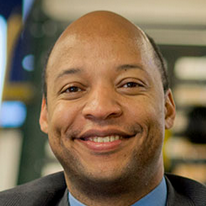 The College of Liberal Arts program in judicial studies at the University of Nevada, Reno graduated the 21st and 22nd judges from its Ph.D. program. One of those two graduates is Ari Tobi-Aiyemo. She is the first Black woman in the United States to earn a doctoral degree in judicial studies.
The College of Liberal Arts program in judicial studies at the University of Nevada, Reno graduated the 21st and 22nd judges from its Ph.D. program. One of those two graduates is Ari Tobi-Aiyemo. She is the first Black woman in the United States to earn a doctoral degree in judicial studies.
Dr. Tobi-Aiyemo currently resides in New York City. She retired from the Lagos State Judiciary bench in Nigeria in 2019. She completed her studies in 18 months with a dissertation entitled “The Role of the Nigerian Judiciary in a Democracy: A Judge’s Dilemma.”
Dr. Tobi-Aiyemo said it’s a bittersweet feeling to know she is the first Black woman to earn a Ph.D. in judicial studies. She said she is flattered but is also saddened that it has taken this long for a person of color to hold this honor. “I hope this will inspire more Black female judges to challenge and pursue this degree that furthers judicial and eventually democratic development,” she said.
Tobi-Aiyemo is returning to New York. “I plan to collaborate with the National Association of Women Judges to encourage judicial education among women judges,” she said. She also plans to collaborate with the judicial studies program at the University of Nevada to educate judges on the real and ideal roles of courts in society.











Correction JBHE. Tobi-Aiyemo is the first Nigerian in the USA to obtain this degree.
Could you regale us with the first Black woman to accomplish what was written?
I just bet you’re either an “African or Caribbean immigrant” based upon infantile and emotive comment. Also, I think you meant to say the “first native born Black American”. Adios you newcomer.
@ Michael
It is probably a Nigerian whose ancestors build generational wealth from selling Blacks to slavery, who can come to the U.S to reap the costs and benefits of university admission and scholarships set aside for ADOS.
You’re absolutely correct as written in “My Great-Grandfather, the Nigerian Slave-Trader” by Nwaubani (2018).
@ Michael
Which is one of the reasons as a Black American, I am hyper competitive against African, in particular, Nigerians, many of whom are lazy and can’t compete.
This is a platform to shed light on the progress that we have made in American society as black people. The negativity that I see here with these comments is exactly why we will continue to have to fight for equality because we can’t even value other blacks and give credit where it is due.